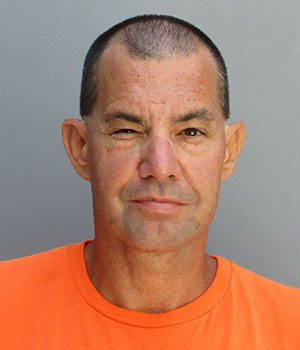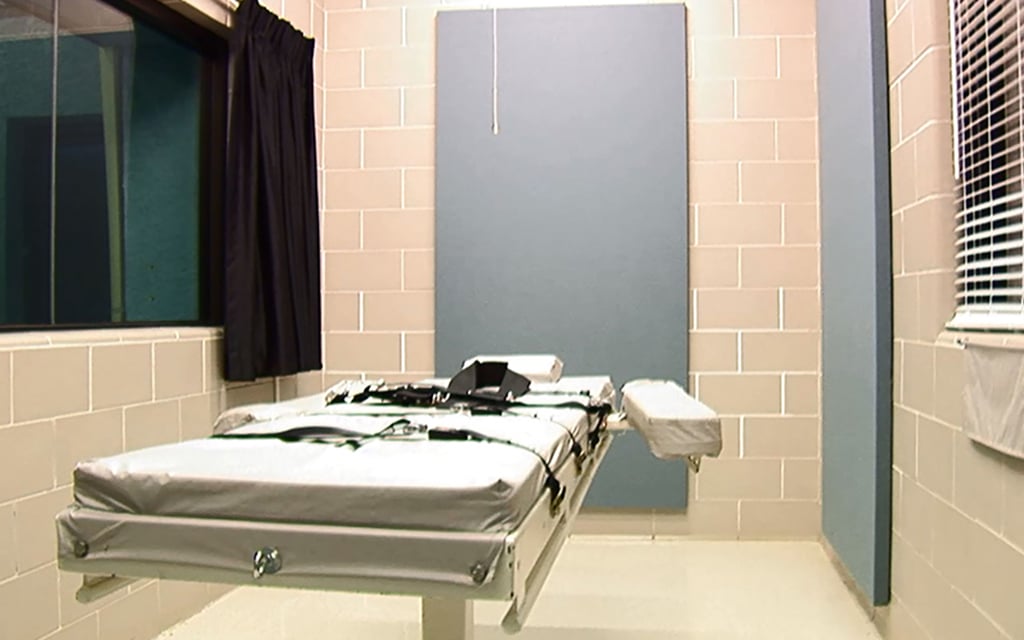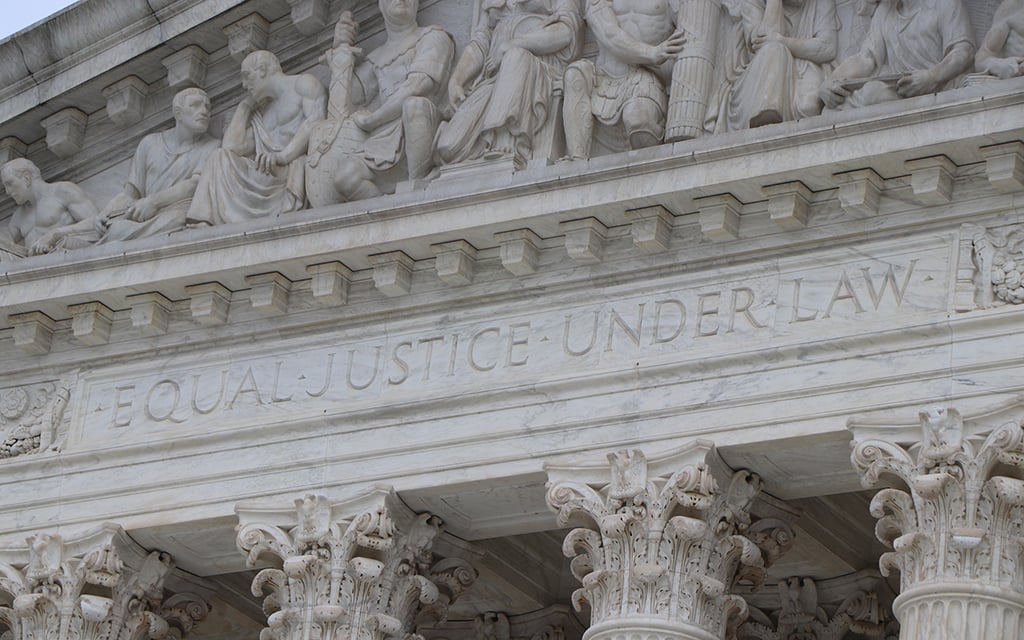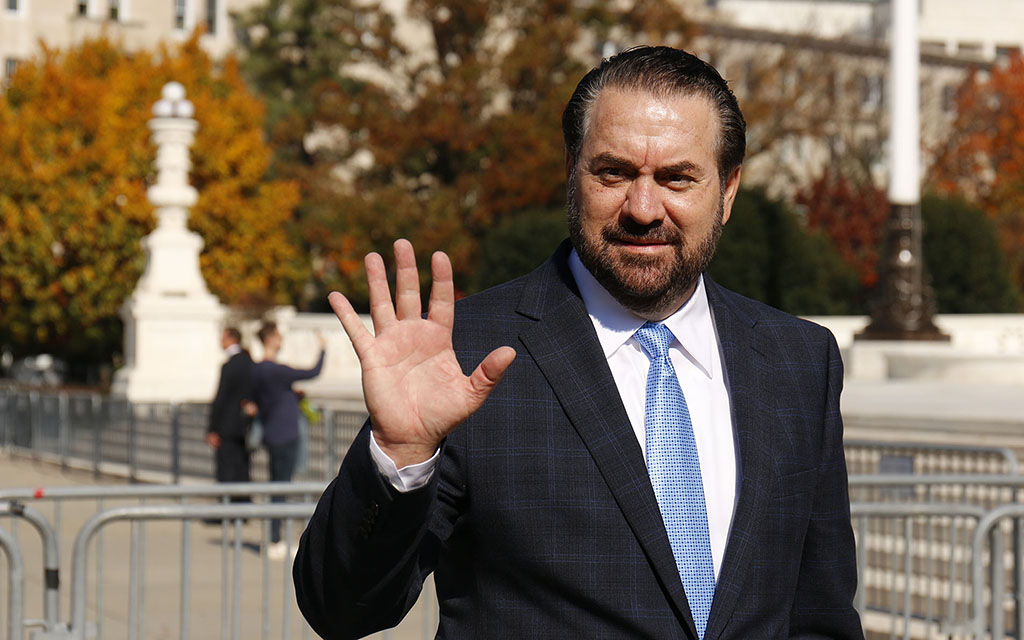WASHINGTON – Aaron Gunches was supposed to die Thursday night. But instead the convicted murderer will spend at least two more months on Arizona’s death row while courts decide if the state can be forced to carry out an execution it says it is not ready for.
Gov. Katie Hobbs has said she intends to carry out Gunches’ death warrant, but not until the state has the proper procedures in place. But Gunches’ victims argued in Maricopa Superior Court Thursday that the delay is denying them their rights.
“The victims will never have their right, in these types of cases, to prompt and final conclusions” under Hobbs’ reasoning, said Ryan Green, one of the attorneys for the victims, in an hour-long hearing before Superior Court Judge Frank Moskowitz.
Attorneys for the state extended condolences to the victims, but also said that forcing Gunches’ execution now would be an “unprecedented encroachment on the executive branch’s authorities.”
“In our system of justice, the state prosecutes crimes not just for individual victims, but on behalf of systems as a whole,” said Sambo Dul, general counsel to Hobbs. “When it comes to carrying out … the most often irreversible of the state’s power – the death penalty – the law, the state constitution commits to the governor, to the executive, to the department, the authority and discretion to ensure that it can do so lawfully, effectively and as humanely as possible.”
At least one other party in the case disagrees: Gunches, who has waived many of his appeals and asked to be put to death, repeated that request Thursday.
“This all goes back to me filing my own death warrant, ’cause I want my sentence carried out,” said Gunches, who participated virtually in the hearing. “The attorney general said that wasn’t happening, and I want whatever gets my sentence carried out as fast as possible.”
The warrant that Gunches had asked for, which the Arizona Supreme Court issued last fall, set the date of his execution for April 6. That warrant expired at midnight.
State officials said they will seek a new one when the time is right – but that won’t be until after the Department of Corrections, Rehabilitation and Reentry has fixed its execution protocols.
“The attorney general is the only person that can seek a warrant,” said Alexander Samuels, Arizona’s deputy solicitor general. “The only way there’s going to be another warrant here is if the attorney general seeks one, and the only way the attorney general is going to seek one is if the department is ready.”
Gunches has been on death row since 2008 for the 2002 first-degree murder of his girlfriend’s ex-husband, Ted Price. Records say Gunches killed Price execution-style on the Salt River Reservation, shooting him three times in the chest and once in the back of the head.

Aaron Brian Gunches has waived most appeals of his murder conviction and asked to be executed, but the state has said it is not prepared to do so. (Photo courtesy Arizona Department of Corrections, Rehabilitation and Reentry)
A month later Gunches was pulled over near the California border by an Arizona Department of Public Safety officer. Gunches shot the officer twice, but the shots were deflected by the officer’s bulletproof vest and his wristwatch. Those bullets subsequently linked Gunches to the murder of Price.
In November, Gunches asked for a death warrant to be issued in his case, a request readily agreed to by then-Attorney General Mark Brnovich, who had resumed executions last year after a eight-year hiatus.
Gunches tried to withdraw his request after Brnovich was replaced by Attorney General Kris Mayes in January, pointing to problems with the three Arizona executions that were carried out in 2022. He said he did not want to be “tortured before he is executed.” Mayes agreed at the same time that Hobbs was calling for a review of the state’s broken execution procedures.
The Supreme Court issued the warrant anyway, but Hobbs said “the State does not seek to carry out an execution at this time.”
That was challenged by Karen Price, the murder victim’s sister, and others who asked the Supreme Court to order Hobbs to carry out the warrant. But the court refused, leading to Thursday’s arguments in Superior Court.
The victims said the court should not take the state at its word, but should hold a fact-finding hearing to determine whether or not there are procedures in place to carry out an execution.
“There is an obvious factual dispute, and that factual dispute goes to the heart of whether or not the governor has faithfully executed the laws as she is obligated to do,” Green said. “And whether or not the governor has exceeded her authority to grant essentially a de facto reprieve, and whether in doing so the victims have had their rights violated.”
But Samuels said the state has faced “an exceptional set of circumstances.”
“This particular warrant was initially sought by Attorney General Brnovich. Since then, there was a change of administration not only at the attorney general’s office, and the governor’s office, but perhaps most importantly, at the department (of corrections),” he said. “We’re in a fundamentally different position than when the warrant was first sought in December, that’s not the type of thing that’s going to keep repeating itself.”
Moskowitz said that without an active death warrant his hands are tied, saying it would be a “constitutional quagmire” to “decide all these facts on what ifs.”
“We don’t have hearings just to find things out so someone else can base a decision on some fact finding,” he said.
But even without an active execution warrant, the victims said state officials should be preparing to execute Gunches, arguing that “their obligation is to be ready, because capital punishment is the law.”
Moskowitz asked for each side to submit further briefs on their argument and set a hearing date for late June, even though he said he is “skeptical” about taking this case.
“Part of me says there’s nothing I can do here and there’s part of me that says I should just dismiss this case now,” Moskowitz said toward the end of the hearing. “But there’s also a part of me that says this is a pretty serious matter. It involves a lot of constitutional issues.”




